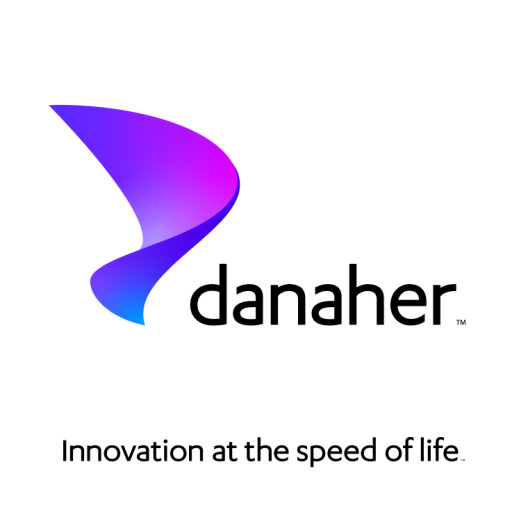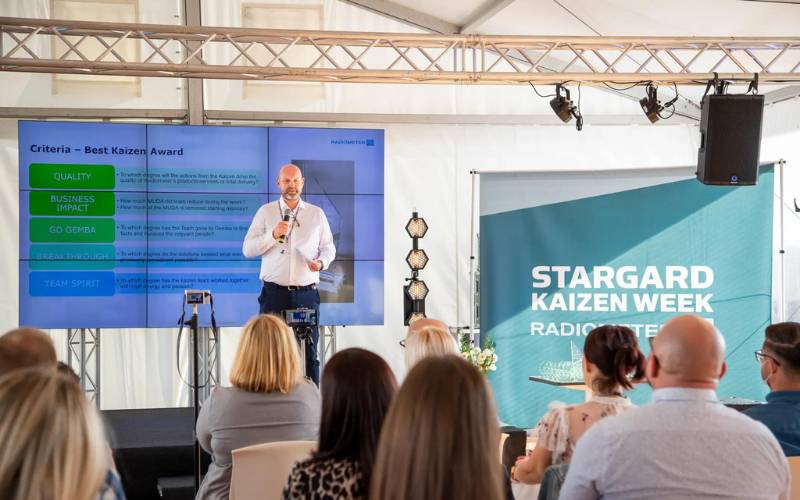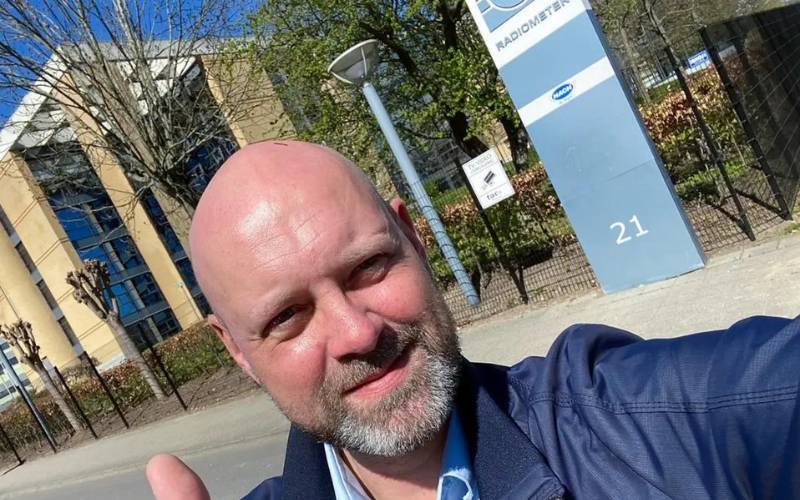
Michael Reinholt Andersen Shares How the Danaher Business System Brings People Together
Business
Processes that make work and life easier have always fascinated Michael Reinholt Andersen. When he learned Danaher was one of the world’s best companies implementing lean manufacturing, he applied to Radiometer, a Danaher operating company focused on diagnostics solutions for acute care settings. Soon after, he landed his dream job as Danaher Business System Leader (DBSL), and after several progressing leadership positions at Danaher he is now Radiometer’s Vice President of DBS. For over 15 years, Michael has helped associates across Europe drive DBS for real results, teaching them how to eliminate frustration from waste and non-value adding activities in their work—ultimately empowering them to make medical products that improve patient care.
What are you working on day to day at Radiometer?
I’m responsible for DBS implementation across all functions at Radiometer. The DBSL team and I make sure we grow our DBS maturity and build DBS muscles within the organization. We make sure we tackle today’s challenges for the benefit of our customers, associates and stakeholders by training our associates in DBS behaviors and techniques hands-on where value is created. At the end of the day, we’re enabling impactful strategy implementation as well as tactical execution.
Working in the acute care industry, there’s of course a great need for our products; our priority is to always serve our customers well and meet their demands. One of the best ways we support that priority is through perhaps the greatest tools in our DBS arsenal—the kaizen, which is the ultimate problem-solving method. At Danaher, a kaizen is a collaborative, weeklong process where a team focuses on a predefined problem and uses DBS tools to identify opportunities for improvement. The team removes what’s not adding value for the customer and implements a new way of working.
The results are often phenomenal. For example, we’ve recently identified an opportunity to reduce lead times from three to four weeks down to less than 24 hours on a product line, meaning we can react flexibly to customer demand. In another example, we increased the volume coming out of a production area by over 50%, just by taking out the activities that did not add value and by improving quality. It’s amazing.

Where did your career start and how did you end up where you are today?
I started out in operations, and I’ve been working in manufacturing for many years. Back in 1998, I learned about the lean philosophy. I have always wanted to understand how to improve processes, and I was really interested in how the lean toolbox could help drive results. Through research, I learned about Radiometer and our parent company Danaher, which was described as one of the best companies in the world at implementing lean. And I thought, “I’ve just got to try to figure out how to work with them!”
After applying for a role here at Radiometer, I spent a year in Operations, where we made improvements by focusing on daily management. That work led me to a role as a DBS Leader—my dream role. Everything else has felt like a bonus. In my 15 years here, I’ve had 9 different positions across Danaher, in most of our platforms, including being a DBS director for Danaher Europe.
And as Danaher has grown, I’ve been fortunate to bring my DBS skills to wherever they’re most needed. I’ve lived in Finland and Germany, but now I’m back in Denmark. Throughout the operating companies and countries, DBS has been a shared language, and I attribute my success to it, and to the many colleagues I have learned from. DBS simply gives you great results.
Why has DBS been such a career motivator for you personally?
DBS fascinates me because it’s really about keeping things simple. Basically, you look at what customers are willing to pay for. What is valuable for them and what isn’t? It’s much easier to remove something that’s not valuable, which gives you time back to focus on what is. As a person, this really resonates, because I don’t like to do things that I know are a waste of time or something I will have to constantly rework.
By removing waste, you automatically become better. If you don’t have to do things twice, you will be faster. But you have to do it the right way. If you just push people without removing the waste or improving the process, then you’ll end up with what we call “fake DBS,” which only creates frustration.
My favorite analogy for DBS is running. You can’t sprint forever, but you can run for a long stretch. Pushing people is making them sprint, and eventually they will feel the strain and become frustrated. Using DBS makes jobs easier and less frustrating, and that in itself is highly engaging. It brings more efficient, sustainable productivity, and that’s why my colleagues often come out of kaizens eager to apply DBS to more aspects of their work.
The best way of teaching people is to get them on board in a kaizen and let them do DBS together in a team. That’s where people can see that we’re not asking people to work harder, but work better, by removing waste. I think in any job, we all know a process that makes you think, “I just wish it wasn’t like this, but I can’t change it.” In kaizens, we get to change those processes we know can be better.

What would you say is challenging about your job right now?
The last two years have been frustrating. When we solve problems with DBS, it’s best to go to gemba—the place where the issue occurred—so you really understand what’s going on. With the pandemic, we haven’t been able to get out in the world as much as we’ve wanted. However, COVID-19 restrictions also showed us there can be a hybrid between remote and in-person learning, so this has been another opportunity to grow DBS tools. For example, as a global company, kaizens can be more convenient and accessible when done virtually. That said, face-to-face is definitely here to stay, and the team and I are excited to be getting our hands dirty again.
What’s really exciting about this moment at Radiometer?
In the very short term, I’m super excited about some major kaizens coming up. I just love seeing the faces of the people who worked together for a full week to solve a problem and are proud of their accomplishments.
Long term, we just finalized our global DBS strategy for the next three to five years, and I can’t wait to present that to our global team.
So if you have an interest in improving things, if you want to have a great impact, if you want to have great opportunities for yourself, then come to Radiometer and Danaher. Here, you can have a typical career path in your field, but DBS can also be a rewarding career path. Or you can do both at the same time. The tools and insights you’ll gain will benefit you for the rest of your career.

